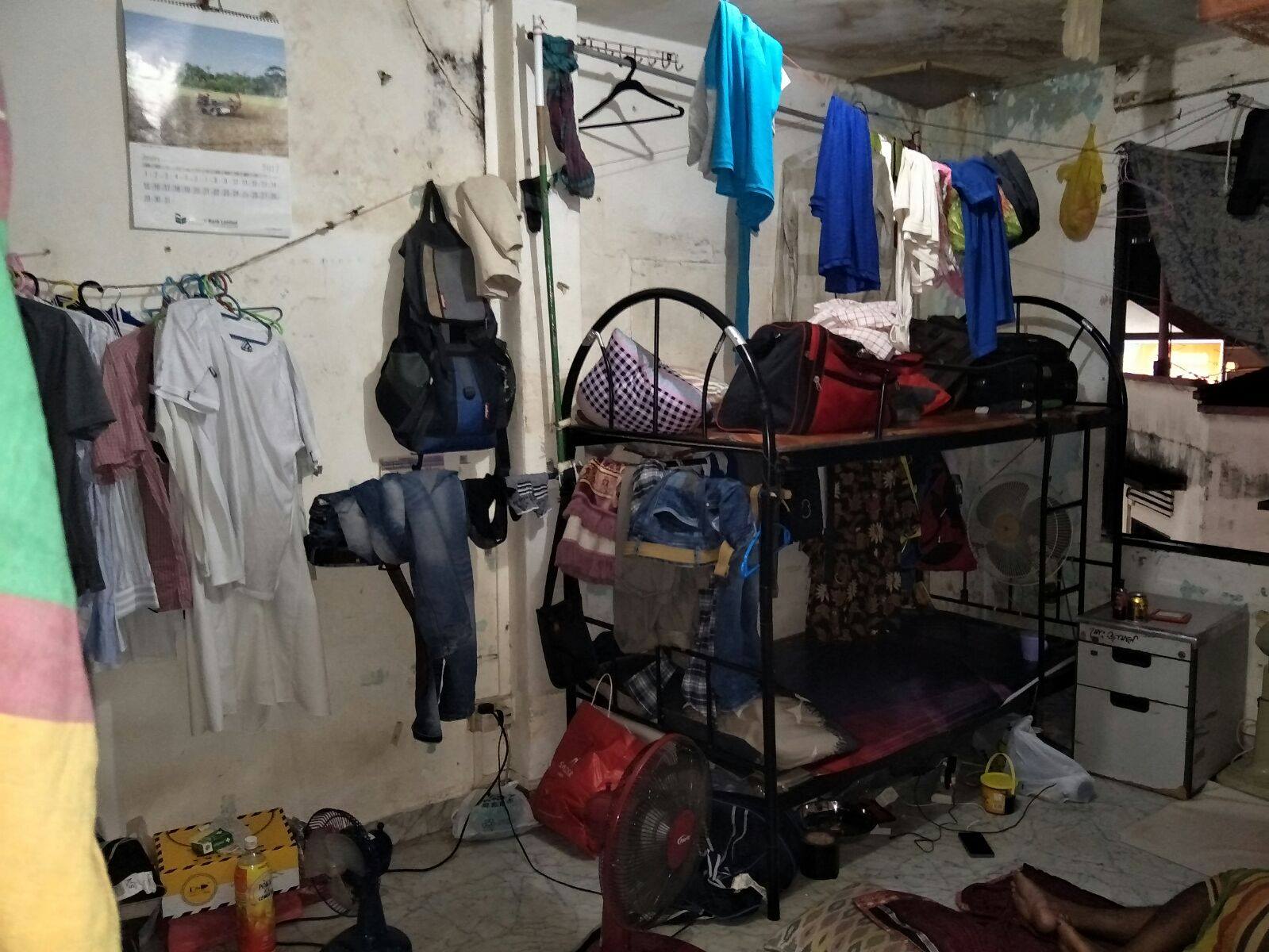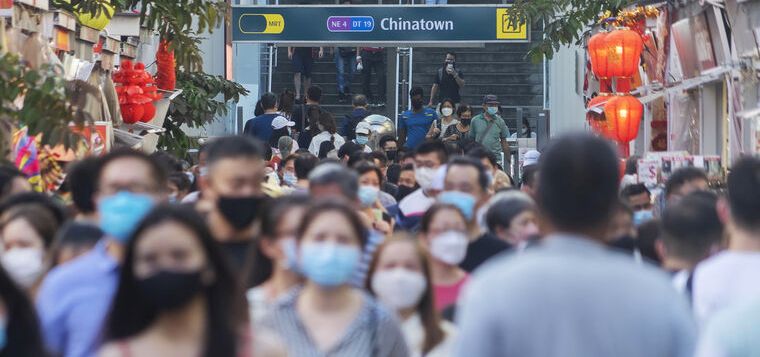For individuals, corporations and even governments alike, frank self-assessment can be a valuable tool, though not everyone is keen to engage in the exercise. Malaysia’s southern neighbour, however, has taken a critical look at how it dealt with the pandemic – and what lessons were learned.
Singapore’s government recently released a white paper which reviews and assesses their response to the Covid-19 pandemic and identifies things they felt they did well, as well as those where they believe they could have done better. We feel it’s well worth a read and so have linked it here. (Click for downloadable PDF.)
In terms of loss of life, the numbers reflect well on the Singapore government’s response, with the city-state’s Covid-19 death count reported as just over 1,700. Malaysia, on the other hand, reported almost 37,000 deaths from the virus which, even allowing for the fact the population is more than five times that of Singapore, is a much higher rate.
That said, our view is that it is obviously easier to handle a disease outbreak in a country which is only the size of San Francisco than in a country where the population is spread over many thousands of square kilometres – and two distinct landmasses – like Malaysia.
Singapore’s report compliments the government on the way they carried out national vaccinations, provided financial support, kept their economy moving, and provided regular updates and communicated relevant information to residents on a timely basis.
They admitted they erred when it came to inconsistent messages about new rules and announcements of new standard operating procedures, which were changed too often and led to confusion and anxiety.
As the scope and seriousness of the disease’s outbreak became evident, Singaporeans and Permanent Residents were allowed unrestricted entry into the country, but the government acknowledges that long-term pass holders should have been allowed to return to the country earlier. The report further admits that this damaged Singapore’s reputation, and that the country lost goodwill from those foreigners who were adversely affected by the rules.

Although no similar study or published white paper has been made public in this country, unfortunately, many of the things mentioned in the report could just as easily have been said about Malaysia.
For whatever Singapore’s shortcomings were with regard to its treatment of resident expats during an unprecedented global pandemic, it’s safe to say that Malaysia was even tougher on foreigners residing here, even refusing entry to permanent residents for a while.
At one point, there was lot of concern about foreigners overwhelming the local hospitals, which was offered up as some justification. Perhaps the worst decision in terms of the country’s image, however, was to refuse entry to those holding MM2H visas, something Malaysia not only did, but something they did for a long period of time.
These MM2Hers – who simply had the misfortune of being out of the country when the March 18, 2020 Movement Control Order was implemented with short notice – represented people who had in many cases had made a permanent move to Malaysia and set up their homes here – often their only home. Refusing them permission to return to their homes caused them great hardships and was a complete repudiation of the marketing messages that Malaysia had been spreading for many years that these visa holders were very welcome in Malaysia.
Even when authorities finally relaxed the rules, those whose visas had expired while they were locked out were told they could not renew them until the country opened to tourists, which was particularly harsh. This was certainly a serious blow to the programme and was a significant factor in many of them deciding to give up the visa.
Subsequently, after the borders were opened, the country continued with a policy which many interpreted as a less friendly approach to the foreigners living here. Research we conducted revealed both working and retired expats felt the government no longer welcomed foreigners, although most believe the Malaysian people are different in this regard, and still welcome them.
Interestingly, this theme was picked up by the PKR political party which was in opposition when the 2023 budget was first tabled. One of their 12 recommendations to the Finance Ministry, before the budget was released, was the government adopting a friendlier approach to foreign residents who of course bring capital into the country. Sadly, when they subsequently got into power and issued a modified 2023 budget, they did not address this recommendation.

One thing that was not mentioned in the Singapore report (as it was presumably outside the scope of the review, though the issue has been assessed and reviewed in a separate study) is that the pandemic revealed and highlighted the poor working conditions, and occasionally the equally poor treatment, of migrant workers. This is true of both Singapore and Malaysia. The crowded and sometimes unsanitary conditions in which these workers are compelled to live make the spread of an easily communicable disease much easier, which happened in both Singapore and Malaysia.
It was an especially pointed problem in Singapore where a fifth of the resident population are migrant workers. The incidence of Covid cases was very high among this group compared to the general population, and it threw into sharp contrast the gleaming, polished image of the city-state with the grim conditions endured by its important migrant worker community.

In summary, despite shortcomings in virtually all countries, it is probably fair to say both Singapore and Malaysia made their best efforts to deal with the disease. Mistakes were undoubtedly made here, but for the most part, we feel they were honest mistakes as the government grappled with an unknown disease with many varying opinions emerging on the seriousness of the virus and the best ways to handle the threat. With nearly seven million deaths worldwide, the Covid-19 pandemic certainly caused an upheaval to the world we live in. For most of us, a global pandemic was an unprecedented event in our lifetimes, and the challenges it presented were equally unprecedented.
Singapore rolled out vaccinations faster than Malaysia, apparently because funds were made available earlier, but Malaysia’s then-Minister of Health, Khairy Jamaluddin, by nearly all accounts did an excellent job of not only procuring sufficient quantities of vaccines (itself no small accomplishment), but ensuring everyone was vaccinated as quickly as possible. Although there are still a few people peddling various conspiracy theories about the vaccinations even today, the facts are indisputable that on balance, the vaccines saved many people from the worst outcomes of the virus, including death.
Indeed, given due consideration to all the unknowns, and when filtering some of the raw emotions that resulted from various decisions here and there throughout the long pandemic, we have concluded, as have many other foreigners, that Malaysia and Singapore did a pretty good job of containing the virus and rolling out appropriate safety measures. Singapore received more international recognition for their response, but Malaysia, particularly given its size, should also be congratulated.
According to the Prime Minister’s Office in Singapore, the recently published white paper will be debated in Parliament later this month.
"ExpatGo welcomes and encourages comments, input, and divergent opinions. However, we kindly request that you use suitable language in your comments, and refrain from any sort of personal attack, hate speech, or disparaging rhetoric. Comments not in line with this are subject to removal from the site. "























